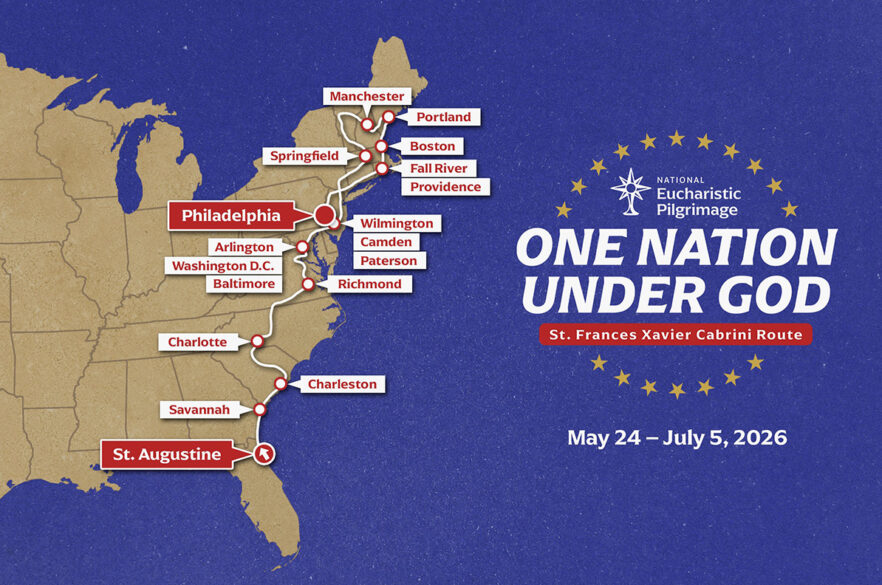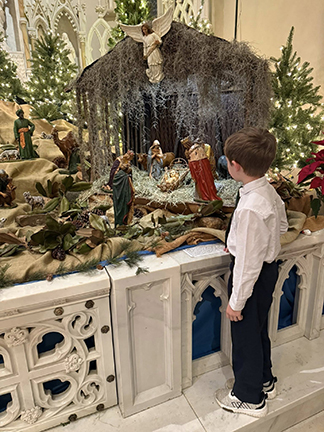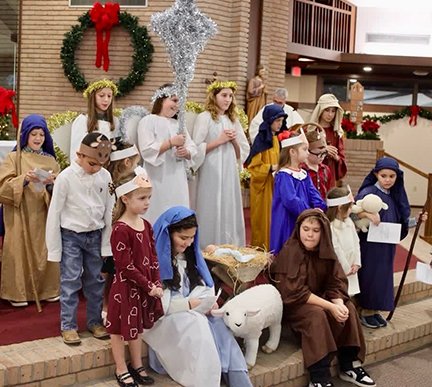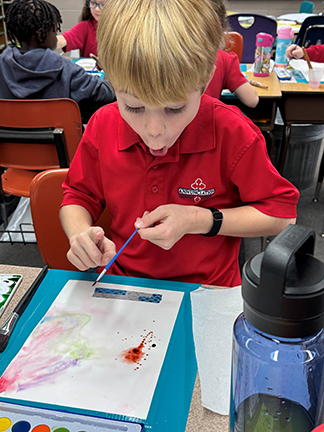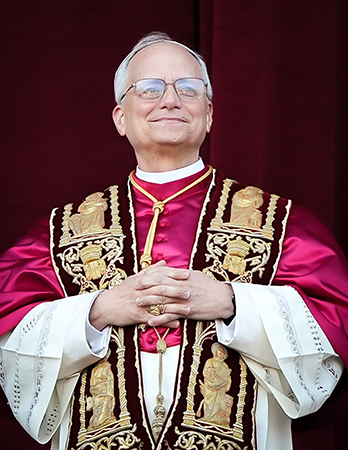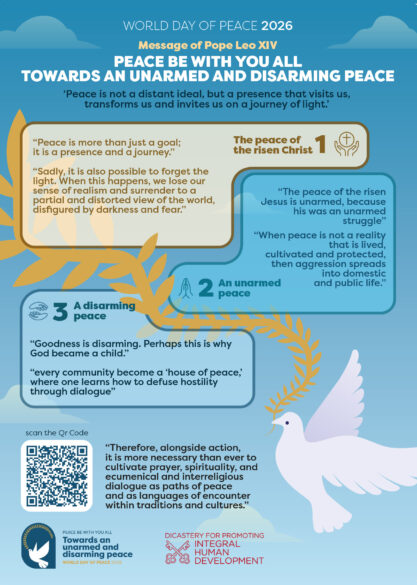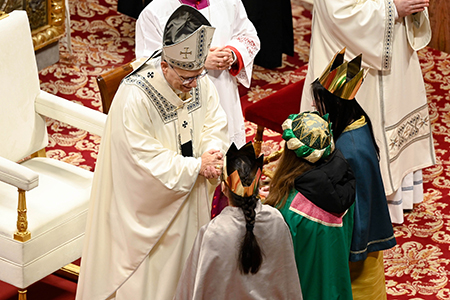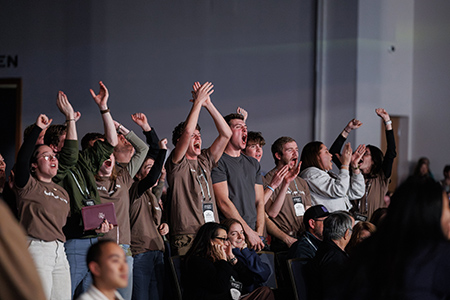By Carol Glatz
VATICAN CITY (CNS) – The powerful and violent cannot control, suppress or commodify God’s grace, friendship and will to usher in a new dawn, Pope Leo XIV said.
“Around us, a distorted economy tries to profit from everything. We see how the marketplace can turn human yearnings of seeking, traveling and beginning again into a mere business,” he said, celebrating Mass in St. Peter’s Basilica Jan. 6, the feast of the Epiphany, and officially closing the celebration of the Holy Year dedicated to hope.
“Let us ask ourselves: has the Jubilee taught us to flee from this type of efficiency that reduces everything to a product and human beings to consumers?” he asked. “After this year, will we be better able to recognize a pilgrim in the visitor, a seeker in the stranger, a neighbor in the foreigner and fellow travelers in those who are different?”
Before the Mass, the pope, cardinals and bishops present in Rome, gathered in the atrium of the basilica and gave thanks to God for the gifts received during the Holy Year. Dozens of the world’s cardinals were in Rome to attend the pope’s first extraordinary consistory Jan. 7-8, to pray, support and advise the pope on the life and mission of the church.
Pope Leo went to the threshold of the Holy Door and pulled each side shut. The door will be sealed until the next Holy Year, which is likely to be 2033, the 2000th anniversary of the death and resurrection of Jesus.
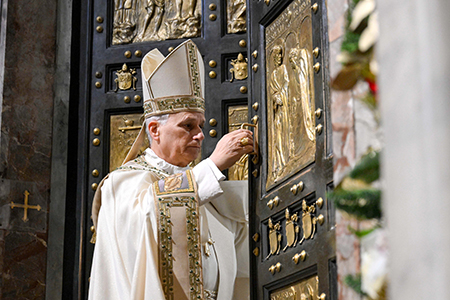
While the last of the Holy Doors in the city was closing, “the gate” of God’s mercy will never be shut, Pope Leo said before shutting the door. God “will always sustain the weary, raise up those who have fallen” and offer “good things” to those who place their trust in him.
In his homily, Pope Leo compared the millions of men and women who came to Rome on pilgrimage to modern-day Magi, “who left palace and temple behind” in search of a new “king,” which they found in the baby Jesus in a humble grotto in Bethlehem.
“Yes, the Magi still exist today. They are the people who sense the need to go out and search, accepting the risks associated with their journey, especially in a troubled world like ours that may be unpleasant and dangerous in many ways,” he said.
However, Pope Leo cautioned, today’s seekers must encounter in today’s churches and sacred places the same humble source of life, hope and joy that the Magi encountered in Bethlehem.
“How important it is that those who pass through the doors of the church perceive therein that the Messiah has just been born, that a community gathers in which hope springs forth and that a story of life is unfolding!” he said.
“Jesus encountered and allowed himself to be approached by all people,” he said, because “the Lord wants his presence to grow among us as God-with-us.”
“No one can sell this to us. The child whom the Magi adore is a priceless and immeasurable good,” the pope said, criticizing “a distorted economy,” which even tries to exploit and commodify the human desire for freedom and true fulfillment.
God revealing himself to humanity as man is “a gift,” Pope Leo said. “He reveals himself and lets himself be found.”
“His ways are not our ways, and the violent do not succeed in controlling them, nor can the powers of the world block them,” he said, recalling the great joy the Magi felt upon finding the Messiah and despite Herod’s efforts to destroy what had been promised.
The fear and violence unleashed by King Herod “make us think of the many conflicts by which people resist and even damage the new things that God has in store for everyone,” he said. “Loving and seeking peace means protecting what is holy and, consequently, that which is newly born like a small, vulnerable, fragile baby.”
“God challenges the existing order,” the pope said. “God is determined to rescue us from both old and new forms of slavery. He involves young and old, poor and rich, men and women, saints and sinners in his works of mercy and in the wonders of his justice.”
“Let us ask ourselves: is there life in our church? Is there space for something new to be born? Do we love and proclaim a God who sets us on a journey?” Pope Leo asked.
“Fear does indeed blind us. Conversely, the joy of the Gospel liberates us. It makes us prudent, yes, but also bold, attentive and creative; it beckons us along ways that are different from those already traveled,” he said.
“It is wonderful to become pilgrims of hope,” who journey together and are amazed by God’s faithfulness, he said.
“If we do not reduce our churches to monuments, if our communities are homes, if we stand united and resist the flattery and seduction of those in power, then we will be the generation of a new dawn,” he said. In Jesus, “we will contemplate and serve an extraordinary humanity, transformed not by the delusions of the all-powerful, but by God who became flesh out of love.”
Outside on a cold, rainy winter morning, St. Peter’s Square was filled with thousands of people watching the Mass on big screens and awaiting the pope to recite the Angelus at noon.
Hundreds of people dressed in traditional and festive costumes took part in an annual folkloric Epiphany procession along the main boulevard in front of the basilica. Marching bands and people in Renaissance costumes paraded up the street behind the Three Kings on horseback.
Before reciting the Angelus from the balcony of the basilica’s loggia, the pope prayed that God’s words “come to fulfillment in us, may strangers and enemies become brothers and sisters.”
“In the place of inequality, may there be fairness, and may the industry of war be replaced by the craft of peace,” he said. “As weavers of hope, let us journey together toward the future by another road.”

